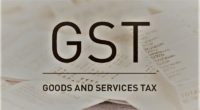The Central Board of Indirect Taxes and Customs (CBIC) has granted a further 3-month extension to the date of applicability of rule 138E of CGST rules from 21 August 2019 to 21 November 2019.
The rule administers blockage of the e-way bill generation due to non-filing of the GST returns or statement, as the case may be. The restriction applies only if the returns or the statement is not filed by more than two consecutive tax periods either for monthly or quarterly taxpayers.
Accordingly, the supplier cannot generate the part-A of the e-way bill on failure to file GSTR-1 and GSTR-3B (for the regular monthly or quarterly filers) or pay tax quarterly in CMP-08 (statement for composition taxpayers).
The Part-A of the e-way bill requires the invoice or such document details of taxable supply of goods; it’s taxable value, tax amounts and HSN code. These details are crucial for GST department to track down non-compliant businesses failing to deposit the tax dues. Also, there are severe penal provisions for transporting consignments without the record of e-way bill.
Also Read: Implications of scrapping Article 370 on GST from Jammu and Kashmir
Hence, by blocking the access to e-way bill generation, non-compliant businesses will be left handicapped and without a choice must file GST returns.
The present system already allows taxpayers to import the sales details onto their GSTR-1 based on the e-way bills generated for a tax period. The facility benefits many B2B dealers (taxpayers supplying to GST registered persons).
It helps them populate most of their information onto GSTR-1 by just a one time upload of most of the invoices on the e-way bill portal. It eliminates the need to upload it again at the time of filing GSTR-1. The coming months will only get better for taxpayers generating e-way bills.
GST return filing will take a new shape starting in October 2019. It calls for the applicability of a single return filing system on a pilot basis. The main returns will be supported by two annexures for the details of the tax liability and ITC claim respectively. The e-way bill generation is expected to be automated for B2B invoices under the new regime.
The applicability of rule 138E was previously extended once from 21 June 2019 to 21 August 2019. Once the provision applies in November 2019, the period between 22 November 2019 up to January 2020 is going to be critical. It is because the regular taxpayers must ensure to file both GSTR-3B of present return regime and annexure under the new return system.
Annapoorna, popularly known as Anna, is an aspiring Chartered Accountant with a flair for GST. She spends most of her day Singing hymns to the tune of jee-es-tee! Well, not most of her day, just now and then.





